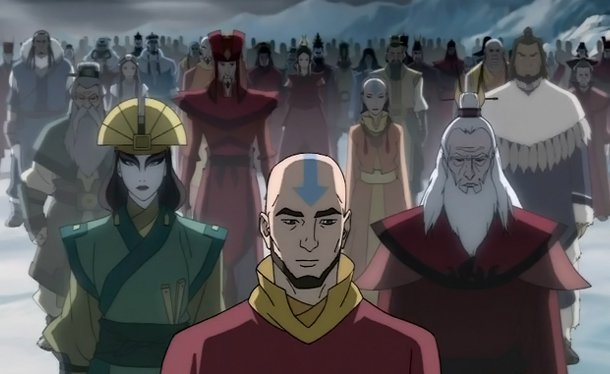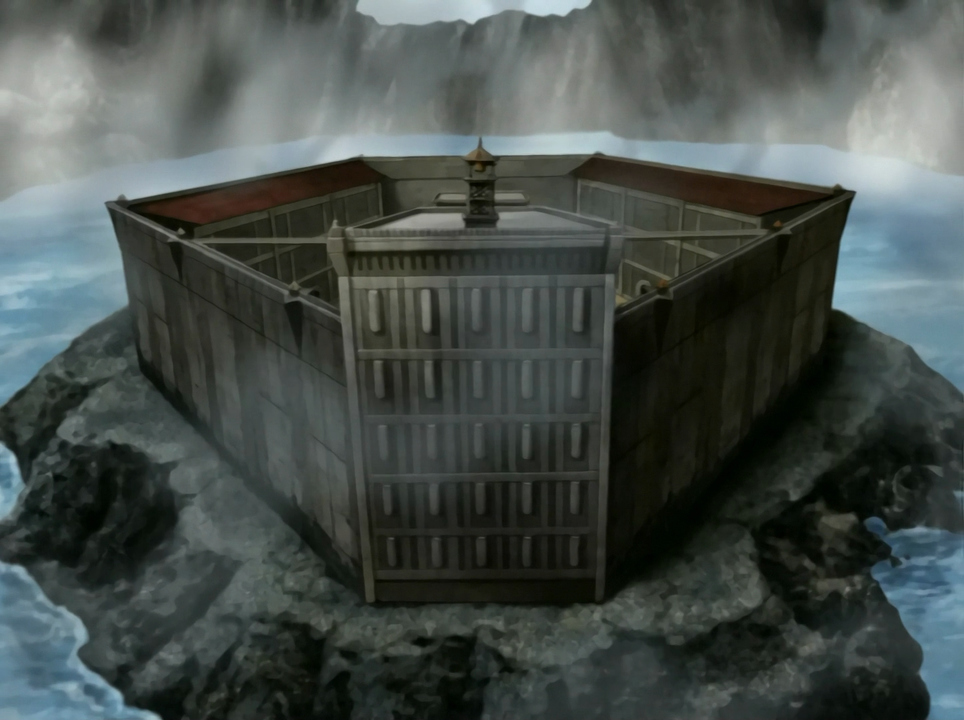Avatar: The Last Airbender – What to Expect From the New Netflix Series
We take a look at all the promise and potential pitfalls of the Netflix Avatar reboot.
Bryan Konietzko and Michael Dante DiMartino are going to bring a live action adaptation of Avatar: The Last Airbender to Netflix. Opinions on this development were immediate and strong on both sides, with the skeptics claiming the lion’s share. Doubts were immediately cast on whether or not this venture was a good idea, some of them understandable, but perhaps the knee has jerked a little too quickly and sharply. I actually came across one comment saying “Did they learn nothing from the movie?” As if M. Night Shyamalan’s racist sinkhole of a movie is even remotely comparable to what the original creative team is capable of putting together. Live action didn’t make The Last Airbender a hot honeyed wreck. The movie did that through a series of terrible creative decisions.
We’re living in an age where pissing and moaning about reboots is almost as inescapable as reboots themselves, and not entirely without reason. It seems like every time you turn around these days another beloved IP has been placed in the wrong hands or fallen victim to executive meddling or excessive test grouping, the result all too often being, well, a piece of crap. This is not, however, an inevitable outcome, and history has shown us that reboots can be well received, even celebrated, provided they’re done well.
Battlestar Galactica. The Dark Knight Trilogy. Voltron: Legendary Defender. All of these properties are adaptations of beloved classics. The main difference, of course, being that they were generally improvements upon their source material, whereas Avatar is pretty freakin’ amazing already, but the point remains: People ended up loving these reboots because they were, for lack of a better term, productive. There was a point to them. They explored a different tone or delved deeper into concepts only skimmed over in the source material. So, this leads us to the question of… why bother retreading this ground? If Avatar was so well made the first time, why go back to the well? Why not just leave it alone?
Well, there are a few reasons.
First off, with Bryke at the helm any fears of blasphemous violations of the canon are pretty much allayed. And if any were concerned that the suits might want to whitewash things a second time, we have it in writing—in a formal statement—that remaining culturally appropriate in the design and casting of this series is paramount. And considering that a large part of the 2010 film’s failure was people being royally pissed off at all the racebending shenanigans and other radical interpretations of the text… look… these executives ain’t stupid. Greedy and shortsighted perhaps, but not stupid. Fidelity to the franchise’s roots was likely one of the new project’s selling points. So, its creative integrity is all but assured.
But again, why would Bryke want to do this in the first place? What would make this retelling worthwhile?
First off, a shift in tone. I could see this series taking a slightly more mature tone than the animated series. Now, I don’t mean “mature” in the way some grimdark fanboy would mean it. I’m not talking titties and blood. That’s neither where Avatar should go nor where I think Bryke have any interest in taking it. I mean mature in the sense of handling the material with a little more frankness, and in some cases a little more weght.
Avatar touched on certain themes and issues like abuse, bigotry, genocide, even PTSD… but only as frankly and overtly as the writers were allowed. With the now historic ending of The Legend of Korra, it’s clear that there was content Bryke would have included if they hadn’t been gagged by Nickelodeon. So, it’s entirely possible there are elements of the Avatar story they could explore in greater depth and at closer range, lengthening and deepening the shadows at the edges of this tale, which is at its core one of imperialism and genocide. It’s also likely that the tone would shift because, well… some stuff just doesn’t work in live action the way it works in animation. There can be humor and even whimsy, but I don’t see Foaming Mouth Guy playing out in live action without completely breaking the verisimilitude of the scene. The Cabbage Merchant, maybe, but there are limits to what people can suspend disbelief for in live action.
This reboot could also allow for a lot more character development. Don’t get me wrong. The characters of Avatar were very well-developed over the course of its three seasons, but there was only so much time to work with, and some stuff got the shaft. I love Aang and Katara, but their romance was very awkwardly written, and not because the kids were awkward; the writing was awkward. It was teased out way too long, and hopefully Bryke has learned that holding off on getting the characters together until the last minute isn’t nearly as interesting as seeing how those characters mesh and conflict as a couple. There’s a reason why Zuko and Mai were the most interesting couple in the series; because we actually got to see them be one.

We could also see more emphasis on character in the fleshing out of storylines and subplots only hinted at in the animated series. We got plenty of background on Avatar Roku, but barely any on Kyoshi and next to nothing on Kuruk and Yangchen. And that’s fine. They weren’t super important, but if there’s an opportunity to learn more about the previous Avatars and how each one’s tenure affected the history of the world, it would really enrich the mythology. The fact that Avatar Kyoshi created the Dai Li is a little semi-canon nugget that I’d love to see dramatized.
This is another area where this reboot could improve upon the original. Bryke created a brilliant mythology, a fascinating, beautiful world full of spirits and creatures… like the Lion Turtles, who were hinted at all of twice before more or less coming out of fucking nowhere with the infamously deus ex machina solution to defeating the Firelord. The jury is still out on whether Aang’s use of energybending was the pinnacle of his outside-the-box problem solving skills or just a dramatic cop out that relieved the protagonist of the internal conflict set before him. Honestly, I’m still torn ten years later. But it’s safe to assume that had the Lion Turtles and at least the base concepts of energybending been better established earlier on in the series, Aang’s depowering of Ozai wouldn’t have seemed quite so much of an ass-pull. This is a fine example of how the story could be improved by feathering in elements that Bryke either didn’t have time to adequately develop or just plain came up with on the fly.
M. Night Shyamalan’s disaster was 95% crap, but it did have one or two nice touches, like Gran Gran mentioning her childhood friend Hama, whom fans know turned out to be the broken and disturbed Puppetmaster, the creator of bloodbending. That little Easter Egg was a fantastic bit of foreshadowing that the animated series didn’t have because Hama hadn’t been thought up yet. Having a chance to go back and leave out the parts that didn’t work (hello, “Great Divide,” how are you?) while working in happy accidents that work beautifully could really make for a smoother story.
Also, Book 3: Fire would be, well, not as loose and shaky. There’s some great stuff in Book 3, but it’s common knowledge at this point that Nickelodeon ordered Bryke to make it less serialized than Book 2, which resulted in a lot of episodic nonsense. I’m sorry, but “The Boiling Rock” is a wheel-spinning two-parter that just did not need to happen. Almost all of the progress made in it is undone in the opening sequence of the next episode. What was even the point? You’re telling me we couldn’t have found a way to spring Suki from prison and have Mai and Ty Lee stand up to Azula without slogging our way through a 45-minute Alcatraz homage?

So, yeah, there’s some serious potential here. It’s not all sunshine and calming jasmine tea, though. There are a few potential pitfalls to this project, namely its structure. Avatar was a well-executed trilogy: three books, three seasons, three elements to for Aang to learn. If Bryke decide to adapt only the story covered in the animated series, then we’re looking at what? Three seasons of 13 episodes? Or maybe six seasons, two to each book? Or perhaps they’ll want to explore the stories covered in the comics, which… look, they’re cute and everything, but they don’t have anything near the scope or stakes of the show. Can you really imagine watching three powerful seasons of Aang building to his fated duel with Firelord Ozai, only to be followed up with two to three anticlimactic seasons of reconstruction and episodic character vignettes? It would be a disaster. So, whatever they’re doing, if it’s not planned out carefully, it could result in an unbalanced series.
Then, of course, there are the timeframes. Child actors grow up, so how would a multi-year series affect the shape of the story? Will Aang be facing Ozai when he’s 14? 16? How is that going to work? These are all fair questions.
Lastly, there’s the aesthetic. You can do anything in animation, but will Netflix afford this project the budget it would need for the special effects to look good? And effects aside, this is a fantasy series. The sets, the costumes, the locations. Sense8 was a critical darling and wildly popular, but the expense of the project was its Achilles heel and ultimately what did it in.
So, it seems there are reasons to be optimistic about this project as well as reasons to be skeptical, but given that Konietzko and DiMartino are directly involved, it certainly deserves the benefit of the doubt for the time being. I for one want to see where it goes, because there’s one last reason it’s an attractive prospect. It’s terribly petty, and I’m not saying this is the reason Bryke are doing it, but I’m sure it’s at least a bonus.
If successfully executed, this show could cleanse our palates of the bad taste that the movie left in our mouths. It can stand up and say, “No, *I* am the live action adaptation of Avatar: The Last Airbender, and that piece of crap is now trivia.” We’ll finally be able to laugh Shyamalan’s The Last Airbender off, rather than roll our eyes in disgust every time someone mentions it, because it won’t be able to hurt us anymore.
And wouldn’t that be something?
